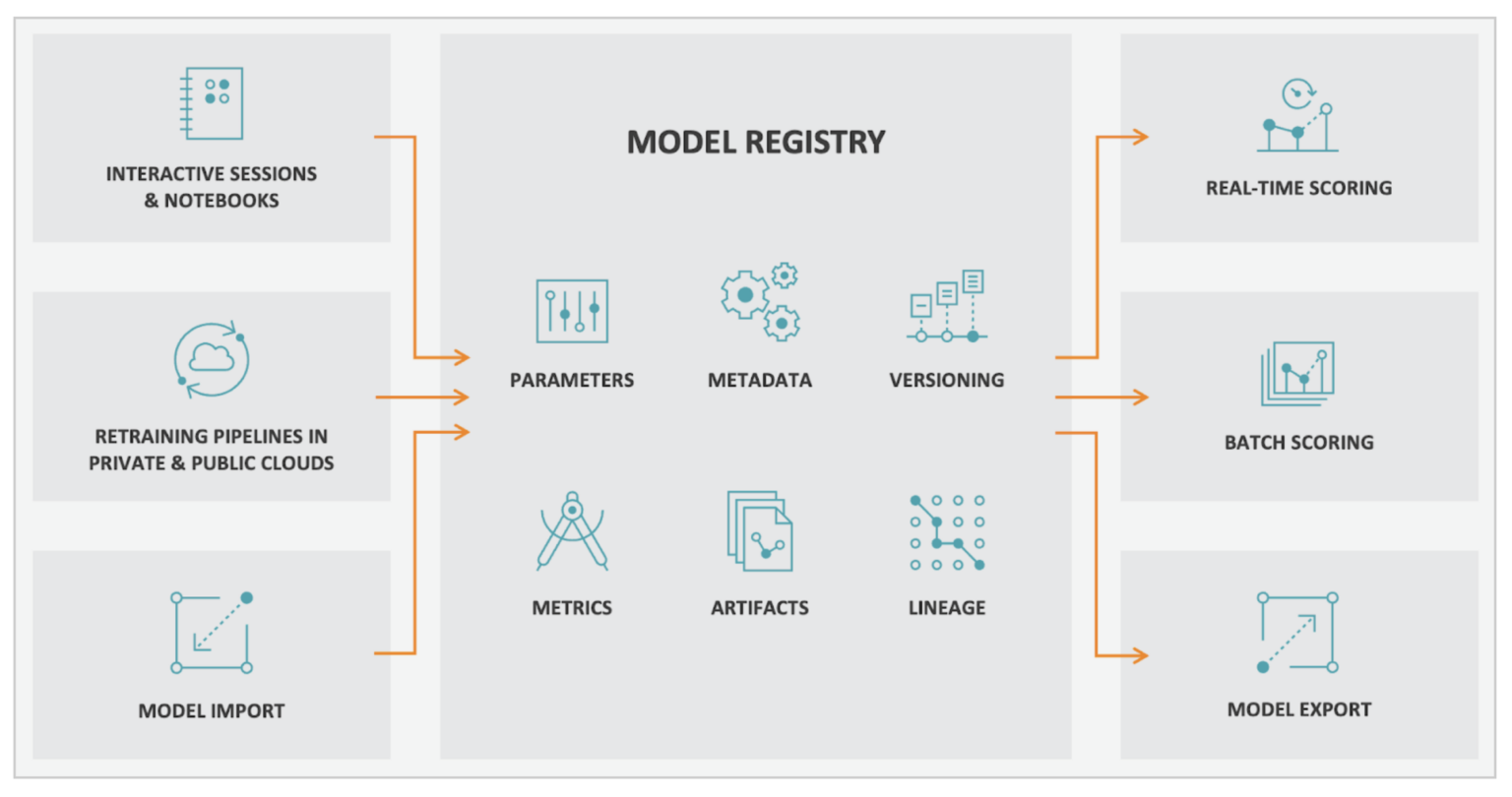Harnessing the Business Potential of AI Model Management
December 6, 2023
Machine learning has revolutionized business operations, but it has also brought about the need for effective model management. Enter the Model Registry – think of it as a digital storage space for your machine learning models. It acts as a central hub, organizing and tracking all aspects of your models throughout their lifecycle. By offering a unified platform, it simplifies the complex task of managing machine learning projects from start to finish.
What Does the Model Registry Provide?
The Model Registry is designed to make your life easier by offering a range of tools and features.
-
User-Friendly SDK: We provide an easy-to-use SDK, akin to the user-friendly MLFlow library, which simplifies model tracking. It makes recording model details, metadata, and metrics a breeze, ensuring transparency in record-keeping. You can use the SDK to register your models in the Model Registry, making management and deployment within your MLOps workflows efficient.
-
Version Control: With the Model Registry, you can store and manage multiple versions of your machine learning models. Track each iteration, compare changes, and always have access to the version you need. This eliminates versioning confusion and promotes a systematic approach to model improvements.
-
Artifacts Management: Our system handles the import and export of model artifacts in standard formats, ensuring compatibility with various systems. This approach streamlines model management and transitions across different project stages.
-
Lineage Tracking: Maintaining traceability in MLOps is crucial. The Model Registry records who made changes to a model, when, and what those changes involved. This creates a transparent and accountable history of your model's evolution, meeting regulatory requirements.
-
Robust APIs: The Model Registry's APIs make integration with CI/CD pipelines and MLOps tools a breeze. They complement existing workflows, making it easier to transition models from development to production. This integration supports efficient machine learning project operations in a dynamic environment.
The Future of MLOps
The world of MLOps is moving towards hybrid and multi-cloud systems, offering flexibility for machine learning operations. This approach enables organizations to train models in a private cloud and deploy them in a public cloud, or vice versa, catering to diverse needs. The Model Registry plays a vital role in facilitating this flexible, cross-environment approach. We're actively working on enhancing our system to simplify model management and deployment across different cloud platforms, making machine learning workflows more efficient and scalable."


